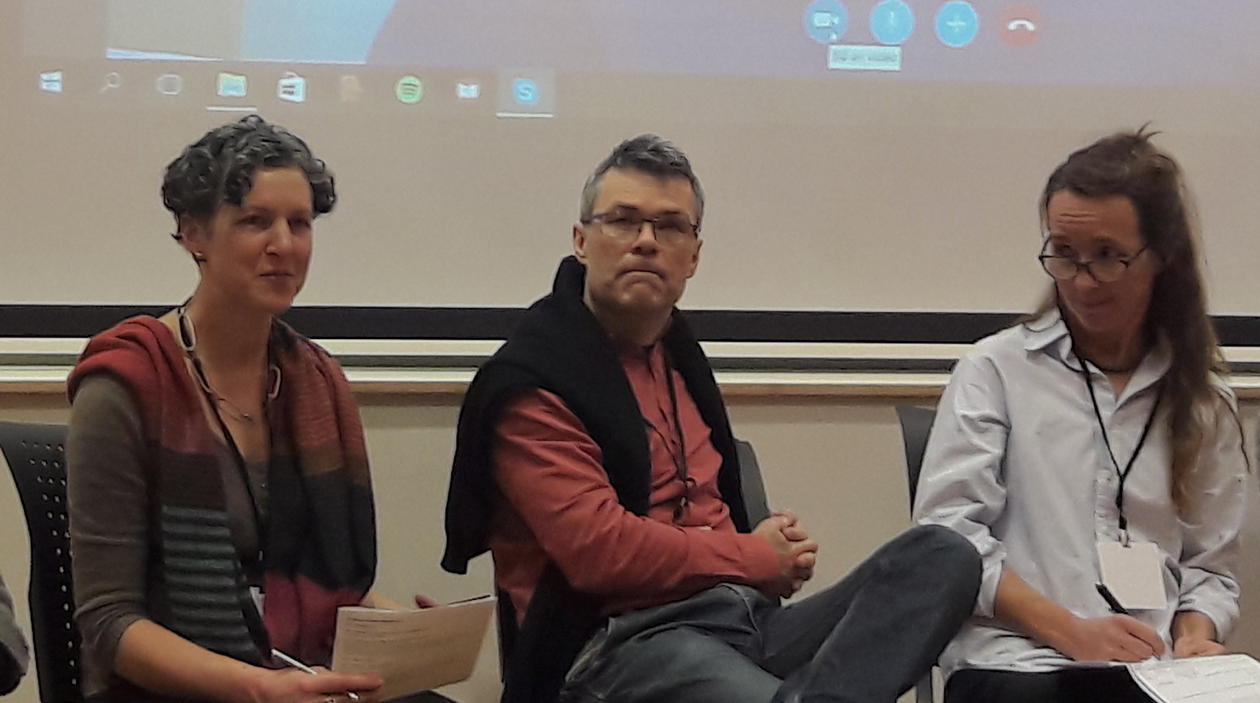Launch of Energy Anthropology Network
Bringing together scientists and practitioners with common interest on energy, and to support new approaches to energy questions is at the core of the new Energy Anthropology Network that was launched at University of Bergen in March.

Main content
Founded in summer 2016, the Energy Anthropology Network was officially launched on the first day of the Energy Impacts conference hosted by the University of Bergen. The roundtable panel consisted of two of the network convenors, Simone Abram and Nathalie Ortar, and researchers Felix Ringel, Jamie Cross, Tanja Winther, Ståle Knudsen, Aleksandra Lis and Laura Watts.
The purpose of the network is to bring together anthropologists, and others, interested in energy research and to support new anthropological approaches to energy questions. The network is linked with the European Association of Social Anthropologists (EASA) and aims to be a platform where collaborations can grow and to spark public debate.
Bringing the anthropological and ethnographic voice is important when collaborating interdisciplinary and to enable good conversations with engineers and other practitioners. The panel also emphasised that anthropology must not just be reduced to the social, as the contribution to the issues on energy is manifold.
The roundtable panel discussed the legacies of energy anthropology, current and future research agendas, and the way forward for the network.
Making energy visible
Energy is ever present. It is part of our everyday lives, politics, infrastructure, language, the shaping of societies and power relations. However, in some ways energy and electricity becomes subtle and invisible.
- There are social issues about energy that needs to be untangled, Tanja Winther said. She explained how the difference in access to energy and electricity creates particular power relations, such as the relation between worker and employer.
More ethnographies of energy can spark new perceptions of the physical, social and powerful aspects of energetic infrastructures that people take for granted, the panel highlighted. Secondly, this can empower people to reconsider their energy practices.
Whose stories are told?
Looking at the theoretical legacies, Jamie Cross emphasised that it is important to go back to the classical anthropological works of Bronislaw Malinowski and others and explore what they have said and also, more usefully, what they have not said.
Research is always influenced by the perspective of the researcher, as it is the researcher who always chose which stories to be told and what to bring into being.
- We decide whose voices we are manifesting and who we are silencing, Laura Watts said, highlighting the importance of how to get the handle of politics of the stories anthropologists tell. She also talked about the great potential in collaborating with artists, poets, designers and others, as they will tell other kinds of energy stories.
Exporting energy anthropology
Energy as a field of anthropological research is emerging. One of the aims of the network is to be a platform where academic research can be brought out to a broader audience and to encourage community outreach and contribute to public debates.
The network convenors encourage scientists, students, practitioners as well as activists and decision-makers to sign up for the network emailing list. Read more about the Energy Anthropology Network and how to join their emailing list at the EASA website.
